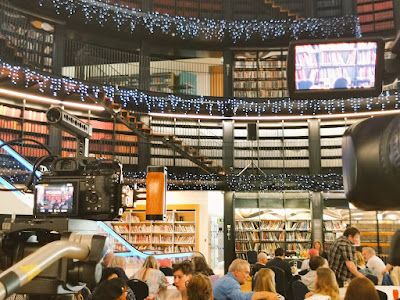Growing Up in Gaza
Ahmed Masoud
I grew up in Gaza in a crowded house, with ten people including my parents, at the heart of the Jabalia Camp. We barely had space for ourselves let alone good living conditions. My two-bed home which I shared with my eight siblings and parents was just a few bricks covered in asbestos sheets. It was like a boiling oven in summer when temperatures reached around 42°C in August and the total opposite in winter. Between January to March it always felt that being outside the house was warmer than inside.
Every corner of this place was filled with either our UN-donated flour rations, cooking oil, dry baby milk and lots of old rugs used as mat to spread the dough on when my mum made bread. However, and somehow, there was enough room for books at home. They weren’t stacked on a bookshelf, but dotted everywhere in the house. I would often step over a biography of Lenin’s thrown down by the TV stand, or I would open the wardrobe to get dressed and the first thing my hand would touch was the complete works of Ghassan Kanafani. Mahmoud Darwish’s various anthologies were by the window ledge, Emil Habiby’s classic The Pessoptimist was under the stand which had the mattresses we slept on and only got out at night.
My father studied Arabic literature in Cairo and he loved books. He brought a new one with him every time he got back from work. He used to make me read by asking me to circle certain words throughout the book, promising a prize at the end of it, things he could never afford and I never saw. We grew up poor and there were many days we couldn’t afford to eat. Chicken was a treat once a month, and only if we had guests coming over. They would eat first, then we would finish the bones.
But the books around me carried me through this harsh childhood, and took me far away from the stench of sewage in winter. I smelled the oranges in Ghassan Kanafani’s works so vividly that I dreamed one day I would become like him: a Palestinian writer who tells stories of people from Palestine. I read more, I studied hard while working at a construction site at the age of eleven.
All of the above is captured in my new novel Come What May – not my personal story of course but the sense of life in Gaza, the houses, the food, the smells. There are some scenes in my memory that are hard to forget and as a writer they have become the backdrop for my writing. The novel, therefore, paints a picture of the Camp and life under Israeli occupation in general. But it goes deep into the psychology of the people, spending time in the green room of those characters to get the reader to know more about them, about who they are and what made them behave in certain ways.
Having lived in London for a while now, visiting Gaza every year to see my family, I wanted to write a novel which talks about people as they are – to say to the world that we are just like any other society, we have the good and the bad, we are not some kind of aliens. This is why I chose crime as a way of spotlighting some of the many social issues in the besieged Strip, from class differences to gang culture, to murder and love and betrayal. Come What May is a literary work that delves deep into the beautiful culture of a people who are often dismissed as sub-humans.
It's very different from my last novel, Vanished – the Mysterious Disappearance of Mustafa Ouda, in the way it takes the reader to Gaza and leaves them there for a while. The tour guide is your main character, thirty-five-year-old Zahra who is on a mission to find her husband’s murder.
Thanks to Victorina Press for giving my words the podium to be read and for being the teleport to a place which is almost impossible to go to.
Ahmed Masoud is a writer and director who grew up in Palestine and moved to the UK in 2002. In 2019, he worked with Maxine Peake on Obliterated, a theatrical experiment and artistic protest – you can find a
small piece on Youtube.
Ahmed’s Theatre and Radio Drama credits include: Application 39 (WDR
Radio, Germany 2018) Camouflage (London 2017), The Shroud Maker (London
2015 – still touring), Walaa, Loyalty (London 2014, funded by the Arts
Council England), Escape from Gaza (BBC Radio 4 2011). Ahmed is the
founder of Al Zaytouna Dance Theatre (2005 – 2013) where wrote and
directed many productions with
subsequent tours in the UK and Europe, including Unto the Breach (London
and Vienna 2012) Between the Fleeting Words (London, Zurich, Freiburg,
Ljubljana, Madrid 2010 – 2012). Ila Haif (London, Freiburg 2008-2010)
Hassad (London 2007 – 2008). After finishing his PhD research, Ahmed
published many journals and articles including a chapter in the Britain
and Muslim World: A Historical Perspective (Cambridge Scholars
Publishing, 2011). Most recently, Ahmed launched his new artistic
initiative called PalArt Collective. For more information, please see
www.ahmedmasoud.co.uk
You can buy a copy of Come What May here










